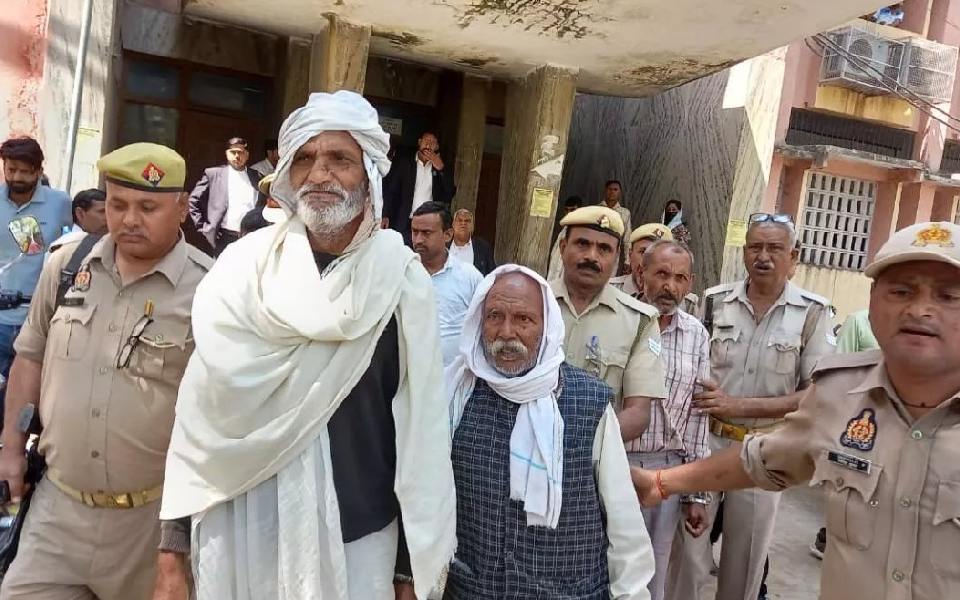Three Sentenced to Death for 1981 Dalit Killings: In a significant judgment, three individuals have been sentenced to death for their involvement in the 1981 killing of 24 Dalits in Uttar Pradesh.
Introduction to the Dehuli Massacre Case
In a landmark judgment, a special court in Mainpuri, Uttar Pradesh, has sentenced three individuals to death for their role in the brutal massacre of 24 Dalits in Dehuli village, Firozabad district, in 1981. This verdict comes after a prolonged trial spanning over four decades, marking a significant moment in the pursuit of justice for the victims and their families.
The Dehuli massacre occurred on November 18, 1981, when a gang of 17 dacoits, disguised as policemen, stormed the village around 4:30 pm. The gang targeted a Dalit family, suspecting them to be police informers, and indiscriminately gunned down 24 people, including two children aged six months and two years. Nine others were injured in the attack. The incident was widely condemned, and it prompted then-Prime Minister Indira Gandhi to meet the affected families, while opposition leader Atal Bihari Vajpayee undertook a padyatra to express solidarity with the bereaved families.
An FIR was lodged by local resident Laik Singh on November 19, 1981, under IPC Sections 302 (murder), 307 (attempt to murder), and 396 (dacoity with murder), among other charges. During the trial, 14 of the accused died, and one was declared an absconder. The case was marked by delays and challenges, but the determination of the legal system and the persistence of the victims’ families ultimately led to this verdict.
The Verdict and Its Implications
On March 12, 2025, special judge Indira Singh convicted Kaptan Singh (60), Rampal (60), and Ram Sevak (70) for their involvement in the massacre. The court sentenced them to death, in addition to imposing fines: Rs 2 lakh each on Kaptan Singh and Rampal, and Rs 1 lakh on Ram Sevak. The convicts were taken into police custody and are currently being held in a quarantine barrack at Mainpuri district jail before being moved to regular barracks.
The verdict is seen as a significant step towards justice for the victims and their families, who have waited for over four decades. It also highlights the challenges faced by the Indian legal system in ensuring timely justice, especially in cases involving marginalized communities. The case underscores the importance of perseverance and the role of the judiciary in upholding the rule of law.
Legal and Social Impact
The Dehuli massacre case has significant legal and social implications. It demonstrates the commitment of the Indian judiciary to ensuring that justice is served, even if delayed. The case also brings attention to the ongoing struggles faced by Dalit communities in India, who often face violence and discrimination.
The legal process in this case was complex and prolonged, involving multiple legal proceedings and the death of several accused during the trial. Despite these challenges, the court’s decision to impose the death penalty reflects the gravity of the crime and the need for severe punishment in such cases.
The verdict has been welcomed by many as a step towards closure for the families of the victims. However, it also raises broader questions about the effectiveness of the legal system in addressing crimes against marginalized communities and the need for more robust measures to prevent such incidents in the future.
What do you think is the most effective way to ensure justice is served in cases involving marginalized communities, and how can society work together to prevent such atrocities in the future?



 By
By















